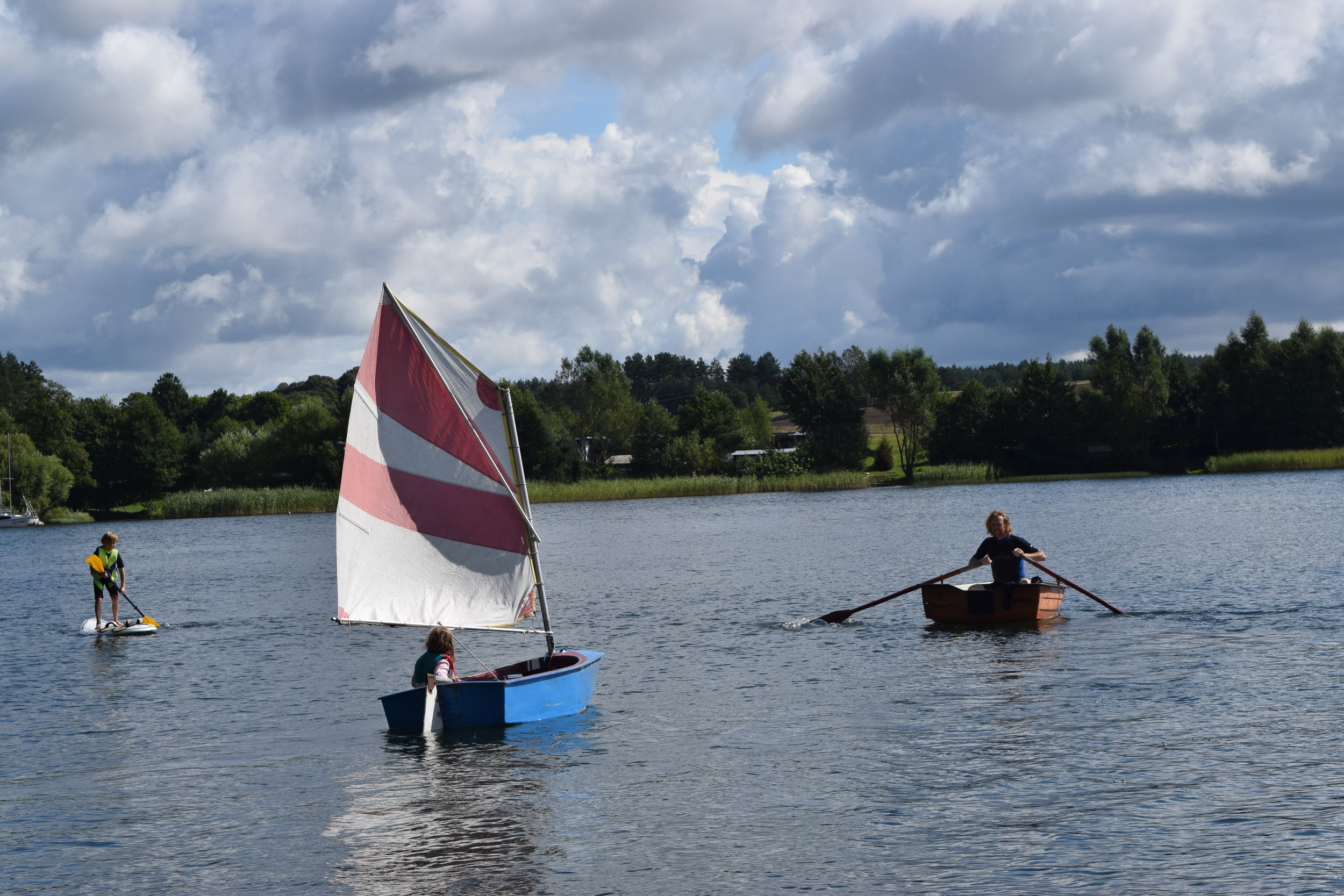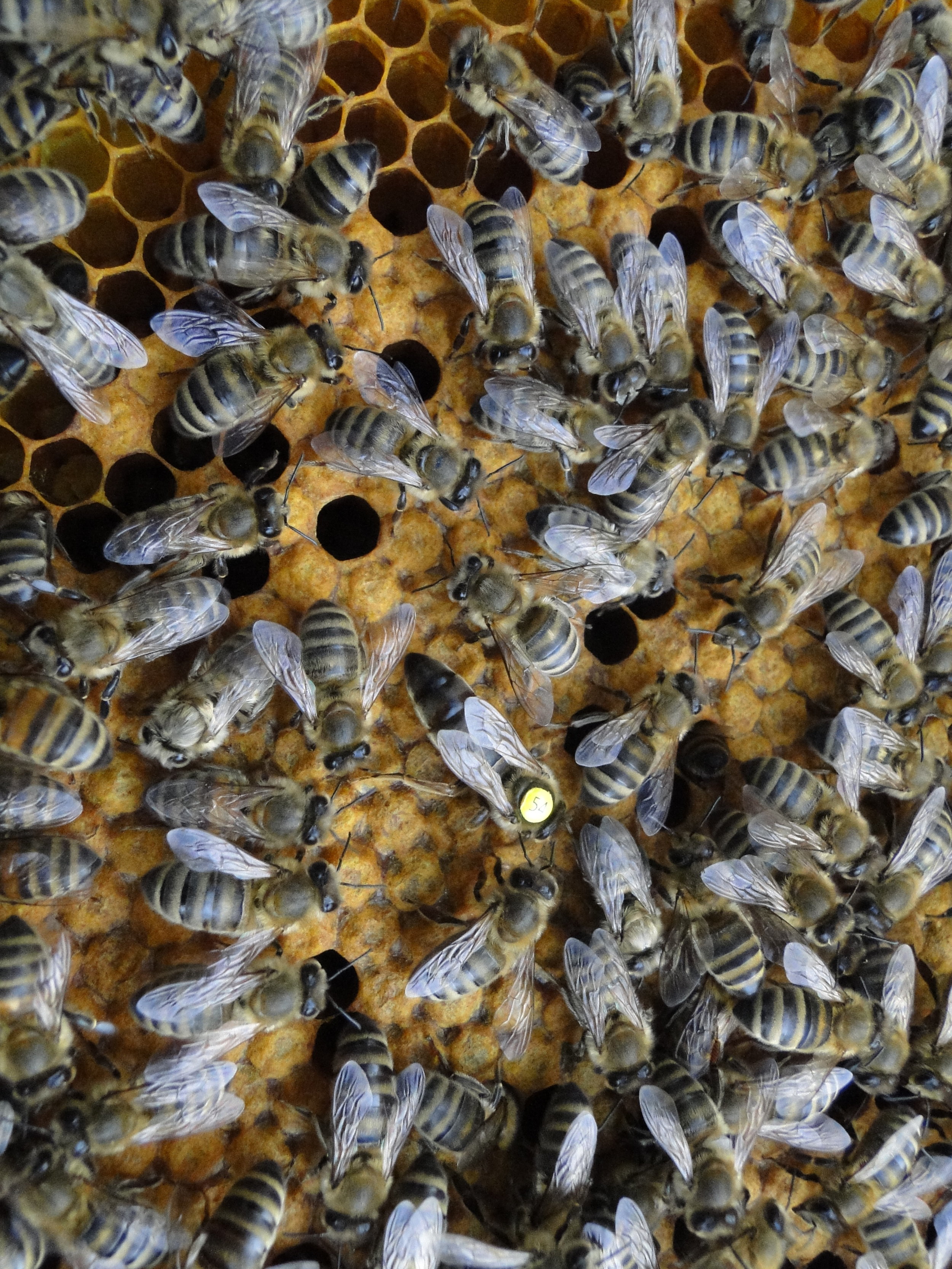Michal Bodziony: Bee Keeper, Architect for Security, and Sailor
I love my trips to IBM’s Krakow Lab. The city’s Old Town is alive with music pouring out of cathedrals, students strolling the Main Square in the evenings, and rowing teams slicing through the Wisla River at dawn — all watched over by a 14thc. castle on Wawell Hill.
A few kilometers away from the historic center is a busy and growing tech community, as full of life as the Town Square, and as purposeful as anything in Silicon Valley. My interview with Michal Bodziony touched on both of these worlds — Poland’s deeply-rooted traditions, and evolutionary algorithms. Born into Communist Poland, Michal is a security architect, a sailor, and a father, and within a few minutes he got me more excited about bees than I thought was possible.
Dinesh and Michal
I understand you live in the same small country town where you grew up.
Yes. I had a happy, country childhood and I wanted the same life for my children. My parents and four siblings are all here — all less than half a mile apart.
Michal building an apiary workshop with his father and son
Sounds like a peaceful and quiet life — until you remember Poland was under Communist rule until 1989. How old were you then?
I was born in 1976 so the change started when I was 13 or 14. Before that, I remember my parents putting us in the queue to buy sugar, and waiting for an hour to by a single kilogram. At the time, we had to learn Russian in school. There was no freedom to learn English and no such thing as private companies. My father was an engineer in the public sector in telecommunications, and my mother was working at home.
Michal with his wife at their apiary
Did people welcome the transition?
Well, for the previous generation, it was a completely new reality. They were accustomed to fifty years of no freedom, where everything was decided by someone else. Some people adapted very quickly and became wealthy by starting businesses, while others struggled. But to be honest, at the time, I was focused on being in secondary school, my hobbies, my colleagues, and my studies.
Did you know then that you were going to be an engineer?
My father got his first computer at work in 1982. I was 6 at the time and used any excuse to work on it. There were no books — or the books were in English, which I only learned later — so we had to just try things and retry. It was very exciting.
Building a small sailboat
At college you studied AI. What are you doing now at IBM?
In school I focused on artificial intelligence in general, and then my master’s thesis was about optimizing NP-hard scheduling problems with evolutionary algorithms. I started at IBM with optimization, now I’m working on security.
Teaching the children to sail by their own
Which is more challenging, optimization or security?
Security, because characteristically with optimization, you don’t need the best possible solution, but for security you need the perfect solution always.
The crew on their most recent family sailing
Let’s get back to life in the Polish countryside … I hear you keep bees.
Yes! at the moment, I have ~1 million bees. That's just 14 colonies, meaning one queen laid all 70,000 of those eggs. The queen is chosen by the hive…
Michal’s best bee, the queen
Wait, how does the hive elect the queen bee?
Out of thousands of eggs, a few are chosen as potential queens. Before they even hatch, they start “quacking” at each other—it’s a way of letting the other queen larvae know they are there. One eventually wins the quacking competition, and only she hatches. The rest respond with a different noise letting the official new Queen know they cede to her.
The other Queen candidates give up, after being … quacked at?
Sacrifice is part of bee life. Everything they do is for the hive.
It could almost be a model for communist society.
Maybe, but you never have to force bees to behave the way they do. People certainly sacrifice for others, but luckily we're also driven by ego, intellectual curiosity, and self-determination. Bees are fascinating, but you wouldn’t want to be one.
White nights beyond arctic circle together, Michal and his brother
Home town: Tęgoborze, Poland
Current project: Data Privacy in UG&I
Currently reading: 2 in progress..
• Doctor Dolittle’s Circus — together with my youngest daughter. She is very into reading and is very happy if I read with her.
• Libretto of La Boheme by Luigi Illica.
Top Five Operas:
1. Orfeo ed Euridice by Christoph Gluck (There is an interesting interpretation performed by National Opera in Warsaw. In our opera-house in Krakow one can see it perfectly mixed with ballet.)
2. Ercole su’l Termodonte by Vivaldi, (in particular arias performed by Vivica Genaux
3. Il barbiere di Siviglia by Rossini
4. Carmen by Bizet. Of course, performed by a mezzo I admire: Elina Garanca
5. Nabucco by Verdi
Dinesh Nirmal – Vice President, IBM Analytics Development
Follow me on Twitter: @dineshknirmal








